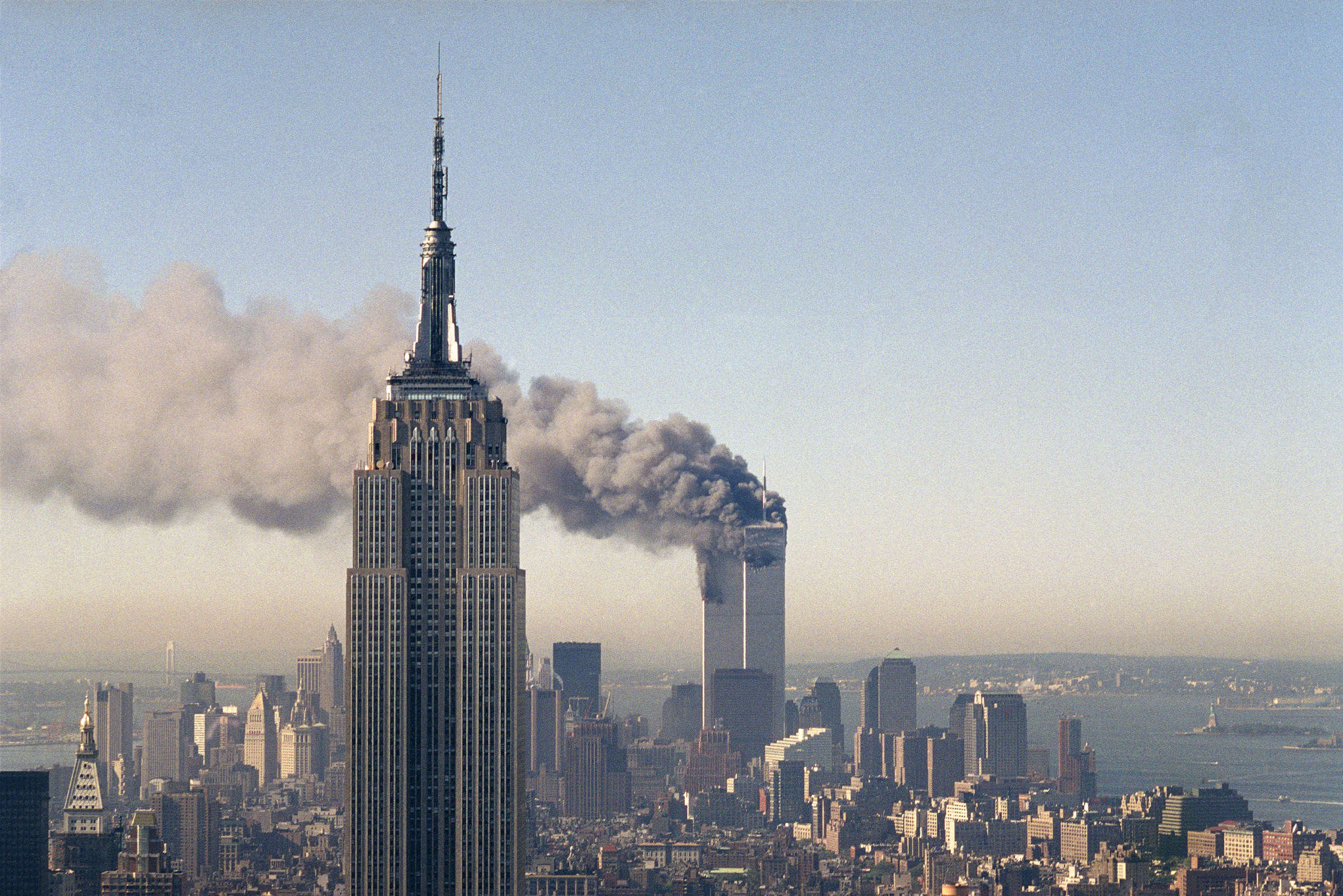
It used to be a joke: “But then the terrorists have won.” Attach the phrase to any sentence—”We could just stay home and watch it on cable, but then the terrorists have won”—and you had both a ready-made quip and a light reminder that life goes on, even after a great national trauma.
But now the terrorists have won.
We know this because Americans say so. In a Pew poll released this week, 40 percent of people said terrorists have a greater capacity than before 9/11 to mount another major attack on the United States. That’s roughly twice as many people as thought so a year after 9/11. It’s the worst assessment recorded in the last 15 years. Today, only 25 percent of Americans say terrorists are less capable of mounting a major attack. While 31 percent say they’re every bit as capable today as they were on 9/11.
In other words, seven out of 10 Americans believe the trillions spent on counter-terror measures since the attacks on New York and Washington have not made a dent. It’s an extraordinary thought. In 2010 the Washington Post took a stab at tallying the herculean effort to stop another 9/11. It put the number of government organizations working on homeland security at 1,271, plus another 1,931 private firms. Workers dedicated to the task toiled in some 10,000 locations across the country, including 33 building new government complexes built for top-secret intel work since 9/11—about 17 million square feet, the equivalent of three Pentagons.
All for naught? Surely there’s a certain amount of waste and featherbedding in a security industry that one study estimated at $350 billion a year. But, to come at the matter another way, is it mere coincidence that 15 years have passed without another major attack in the U.S.? Another major attack—a “spectacular”—is all al-Qaeda wanted to do, and it never came close. The group couldn’t even bring down an airliner, thanks partly, it’s true, to luck with shoe and underwear bombs, but the TSA screening obviously frustrated more than us innocent travelers.
All of which seems to place the Pew finding in the realm not of facts, but of feelings. Some of these feelings turn out to be partisan: Pew found Republicans much more agitated about terror than Democrats are, and also much more inclined to fault President Obama for that feeling (the same was true about Democrats under Bush). Terrorism has gone, in the last decade and a half, from something that united us to one more thing that divides us. It now takes in the divisive issues of refugees and Islamophobia, along with other, less easily named concerns that find expression in a generalized sense of rising dread. ISIS has done a superb job of exploiting that feeling—leveraging brutality to seize control of the news cycle for months at a time, making themselves appear huge. They are not, according to those who have seen them up close. “A few of them were smart, I have to admit,” Nicolas Henin, a French journalist who was held by ISIS for ten months in 2013-14, tells TIME. “But they were mostly like street kids. Just go to the corner in your town, and engage some of the youngsters who are sitting on the block. They are these people.”
After the San Bernardino attack of last December, terrorism was briefly the nation’s most pressing concern, even though the 14 victims numbered fewer than the hijackers (19) killed on 9/11. Since then, jobs and the economy have resumed the top spot. And yet talk of terrorism, linked with immigration and the more general rubric of national security, dominates the presidential campaign. It is, itself, unsettling when the prospect of an attack worries ordinary people far more than it does the officials in charge of preventing such things. “I don’t worry about it very much,” says Philip Mudd, who used to be the top FBI official for counter terrorism, speaking in an HBO documentary called Homegrown. He describes a soccer mom who insists to him that she and her family are going to come under attack. No, Mudd tells her, they’re not. But the look on his face makes clear that the woman went away unconvinced. Look at the polls. Can’t stop the feeling.
More Must-Reads from TIME
- Donald Trump Is TIME's 2024 Person of the Year
- Why We Chose Trump as Person of the Year
- Is Intermittent Fasting Good or Bad for You?
- The 100 Must-Read Books of 2024
- The 20 Best Christmas TV Episodes
- Column: If Optimism Feels Ridiculous Now, Try Hope
- The Future of Climate Action Is Trade Policy
- Merle Bombardieri Is Helping People Make the Baby Decision
Contact us at letters@time.com